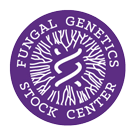Strain: Neurospora crassa
FGSC #7432
Reporting Genes: cum Sk-2K acr-7
Species: crassa
Allele: P5241 B P1676
Alternate Strain Number: 3269
Depositor: DDP
Linkage Group: IIIL L L
Mating Type: a
Genetic Background: SL
Genes

Reporting Genes: cum Sk-2K acr-7
Species: crassa
Allele: P5241 B P1676
Alternate Strain Number: 3269
Depositor: DDP
Linkage Group: IIIL L L
Mating Type: a
Genetic Background: SL
